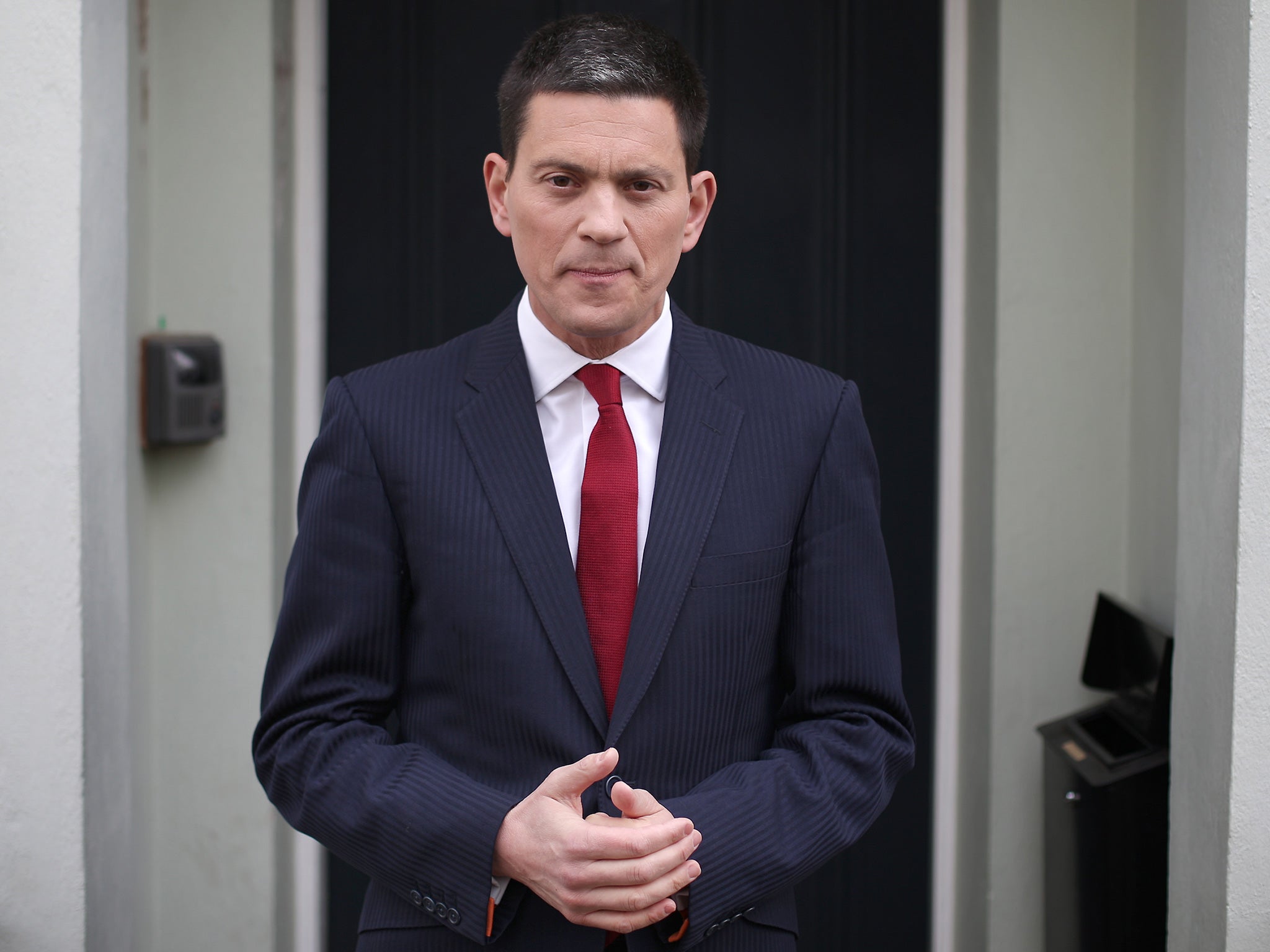David Miliband calls for second referendum on Brexit deal to stop UK being 'driven off a cliff'
Former Foreign Secretary describes 2016 referendum that triggered Brexit as ‘unparalleled act of economic self-harm’

David Miliband has issued a call for politicians on all sides to fight back against the “worst consequences” of last year’s vote for Britain to leave the EU.
The former Labour Foreign Secretary described the outcome of the 2016 referendum as an “unparalleled act of economic self-harm”.
Writing in The Observer, he said the country should have the chance to vote on any Brexit deal in a second referendum, with a straight choice between remaining in the EU and the negotiated alternative.
“People say we must respect the referendum. We should. But democracy did not end on 23 June, 2016. The referendum will be no excuse if the country is driven off a cliff,” he wrote.
“MPs are there to exercise judgement. Delegating to Theresa May and David Davis, never mind Boris Johnson and Liam Fox, the settlement of a workable alternative to EU membership is a delusion, not just an abdication.”
His intervention came as Chancellor Philip Hammond and International Trade Secretary Liam Fox came together to declare that a post-Brexit transition would not be a “back door” to Britain remaining in the EU.
After a summer of cabinet feuding, Mr Hammond, who favours a “softer” pro-business Brexit, and Mr Fox, a hardline Brexiteer, said that they agreed there should not be “cliff-edge” break when Britain leaves the EU in March 2019.
In a joint article for The Sunday Telegraph, they said any transition would be “time limited” and that Brexit would mean the UK pulling out of both the EU single market and the customs union.
“We want our economy to remain strong and vibrant through this period of change. That means businesses need to have confidence that there will not be a cliff-edge when we leave the EU in just over 20 months’ time,” they wrote.
“That is why we believe a time-limited interim period will be important to further our national interest and give business greater certainty – but it cannot be indefinite; it cannot be a back door to staying in the EU.
“We are both clear that during this period the UK will be outside the customs union and will be a ‘third country’, not a party to EU treaties.”
Prime Minister Theresa May will hope the intervention of the two ministers will cool temperatures in the Tory ranks amid divisions over Brexit and speculation of a possible leadership challenge when MPs return to Westminster in September.
However, the leading Conservative Remainer Anna Soubry warned the Prime Minister that she needed to face down the “hard Brexiteers” in the Conservative ranks if she wanted to hold on to her position in No 10.
“Mrs May is making a great mistake if she allows her policy to be dictated by the Brexit ideologues. They effectively brought down John Major, David Cameron and, arguably, Margaret Thatcher – and will not hesitate to do the same to her,” she said in an article for The Mail on Sunday.
The former business minister also indicated that she could be prepared to join with politicians from other parties to stop the country “staggering recklessly” towards a hard break with Brussels.
“Could I ever see myself joining with like-minded people who want to save our country from such an appalling fate? And has that moment arrived yet?” she wrote.
“The answer to the first question is ‘it is not impossible’; the answer to the second is ‘no’. But I would be betraying my principles if I did not make it clear that country must always come before party.”
In his article, Mr Miliband stopped short of following the former Conservative aide James Chapman in calling for pro-Remain MPs to come together in a new party.
He did, however, back cross-party calls – supported by Conservative Lord William Hague and Labour's Heidi Alexander and Stephen Kinnock – for Britain to remain in the European Economic Area free trade zone along with Norway, Iceland and Liechtenstein as well as the EU member states.
“In Britain, the implementation of the EU referendum decision has been rash and chaotic. The timing and content has been governed by factions in the Tory party. Our negotiating position is a mystery – even on immigration,” he wrote.
“So the fightback against the worst consequences of the referendum has the opportunity and responsibility to get its bearings fast.”
Press Association
Join our commenting forum
Join thought-provoking conversations, follow other Independent readers and see their replies
Comments
Bookmark popover
Removed from bookmarks